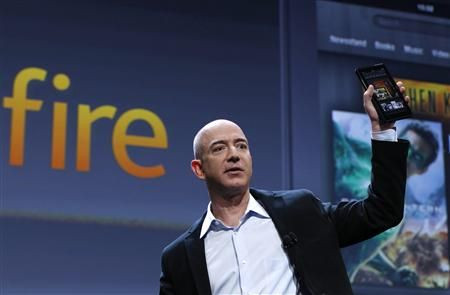As Techies Drool Over Amazon Silk, Privacy Questions Are Raised

Amazon rolled out its new line of Kindle tablets in New York Wednesday morning, adding the seven-inch $199 color Android Fire, the $99 keyboard-free 4GB Touch model and a $79 2GB non-touchscreen version to its ranks. Yet the Amazon product causing the most stir was not an e-reader or tablet, but Amazon Silk, the company's new mobile web platform powered by Amazon's incredibly extensive web services platform.
Unlike traditional browsers, housing of the Silk subsystems is split between one's device and the Amazon computing cloud. Instead of multiple requests from remote servers, Silk would benefit from a drastically simplified asset retrieval process. Webpage requests are routed to Amazon's servers in the cloud and are loaded there, taking advantage of Amazon's high-speed connection, then streamed back to the device as a completed page. According to Brett Taylor, Principal Product Manager of Silk, the user wait time that accumulates as a result of the back-and-forth dialogue between the mobile device and the servers from which it is requesting content would be reduced from 100 milliseconds per exchange to 5 milliseconds.
In a video posted on Amazon's Silk blog today, Taylor discussed these and other benefits of the new split architecture of Amazon Silk. In addition to speedier page requests, Silk optimizes content delivery and includes the capacity for predictive rendering, a process by which aggregated information on user behavior informs the browser of what page the user is likely to navigate to next. Silk then prepares that page before it is even requested, further accelerating the browsing experience.
It is software that Taylor says will change the whole game.
Yet, with the introduction of a native cloud-based browser comes questions of privacy. Browsing will be done on the cloud, but so will shopping, bill-paying and banking. According to ExtremeTech.com, because target websites will only see Amazon's IP address and not the user's, surfing will essentially be anonymous from the customer's point of view. This is unlikely to assuage the concerns of customers who are equally concerned about Amazon's access to their data as they are about that of third-party sites, however.
Amazon has yet to comment directly upon the issue of security. Optimists point to Opera Mini, a likeminded optimizing web browser supported by developer Opera Software and Google that is already available on most mobile systems. Opera Mini also fetches content through a proxy server, reformatting content and enabling faster load times. Unlike Opera Mini, however, Amazon is openly gathering user information for the purposes of its predictive rendering feature. Additionally, though neither company accepts responsibility for third-party search assistants, Opera Mini's privacy policy discloses its transfer partners, while Amazon's does not.
Despite concerns, reception of Silk has been enthusiastic today. Most customers seem unconcerned about the privacy question and are instead wowed by the prospect of an accelerated browsing experience that threatens to leave competition in the dust. For those who remain unconvinced of the security of split browsing, the browser settings include the option to turn off 'EC2 acceleration.'
© Copyright IBTimes 2024. All rights reserved.





















